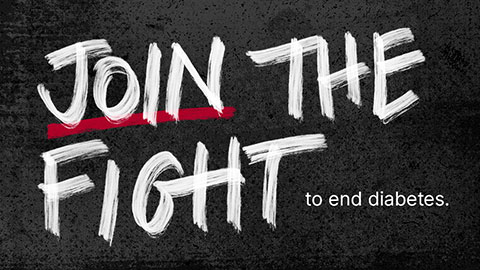The No-Cost Diabetes Risk Reduction Program Aims to Slow Trajectory of Childhood Obesity
This year, Aurora Public Schools (APS) and the American Diabetes Association® (ADA), through the Collaboration for Equitable Health, have teamed up to launch the ADA's Project Power for youth initiative at several local schools. During this national Move More Month, students at Jewell Elementary School participated in the program during their third grade physical education (PE) class.
“We’re excited to bring Project Power into our school,” said Lacy Jolly, principal at Jewell Elementary School. “Creating healthy habits both through physical activity and choosing nutritious food is such an important thing for our students to learn early in their lives. When children learn to make healthy choices for their bodies, it helps them focus and perform better in the classroom.”
Project Power for youth is a fun, no-cost health promotion program for ages 5–12, that aims to slow the trajectory of childhood obesity, type 2 diabetes, and related complications. Using an outcomes-based curriculum, the program promotes making healthy food choices, increasing physical activity, and building family and peer support.
Across the U.S., obesity affects about 125 million Americans, including nearly 20% of children and adolescents. Obesity accounts for up to 53% of new cases of type 2 diabetes each year. Since 2021, Project Power has served over 50,000 youth nationwide.
“We are deeply grateful to Superintendent Michael Giles, Jr., Principal Lacy Jolly, and Aurora Public Schools for welcoming the American Diabetes Association into their community,” said Rene Gonzalez, director of health access & quality community impact at the ADA. “Through this partnership, and with the support of the Collaboration for Equitable Health, we are empowering students in Title 1 elementary schools with Project Power—helping young learners build healthy habits for a lifetime. Together, we are creating brighter futures and leveling the playing field for every child to thrive.”
Seven APS schools will receive six whole-child health lessons (approximately 15–20 minutes each), to be presented during PE or health classes, reaching approximately 3,200 students.
Features of the program include:
- Activity box: Filled with instructive activities and supplies
- Activity journal: Educational tools, games, activities, recipes, and more
- Group time: Intentional programming in groups led by facilitators and PE teachers
- Learning the GO-SLOW-WHOA tool
GO-SLOW-WHOA is a tool children and families can use to guide healthy food choices, encouraging more GO foods than SLOW foods, and more SLOW foods than WHOA foods. This helps students understand which foods are best to eat rarely, sometimes, or often.
- GO examples:
Whole grain foods, non-starchy vegetables, and fruits - SLOW examples:
Refined grains and full-fat dairy products - WHOA examples:
Simple carbs, highly processed foods, sweets, and sugar-sweetened beverages
A 2024 Project Power for youth impact report found that nearly 70% of participants increased their knowledge around the recommended amount of physical activity and drank water four or more times than previously. Nearly 80% of participants indicated the ability to exercise at least five times a week and 75% were confident in their ability to choose fruit as a snack.
Additional information can be found online at /Project-Power.
###
About Aurora Public Schools
Aurora Public Schools is the fifth largest school district in Colorado. APS serves approximately 40,000 students and includes over 60 schools. It is one of the most diverse districts in the state with students from more than 130 countries who speak over 160 languages. Over the past several years, APS has made noteworthy improvements in graduation rates, dropout rates and overall student growth and achievement. In fact, APS graduation rates have increased by almost 25% in the past decade. Destination APS is the district's strategic plan, which emphasizes making APS a place where students and educators are valued, seen, safe and thriving.
About the American Diabetes Association
The American Diabetes Association (ADA) is the nation’s leading voluntary health organization fighting to end diabetes and helping people thrive. This year, the ADA celebrates 85 years of driving discovery and research to prevent, manage, treat, and ultimately cure—and we’re not stopping. There are 136 million Americans living with diabetes or prediabetes. Through advocacy, program development, and education, we’re fighting for them all. To learn more or to get involved, visit us at or call 1-800-DIABETES (800-342-2383). Join us in the fight on Facebook (American Diabetes Association), Spanish Facebook (Asociación Americana de la Diabetes), LinkedIn (American Diabetes Association), and Instagram (@AmDiabetesAssn). To learn more about how we are advocating for everyone affected by diabetes, visit us on X (@AmDiabetesAssn).

